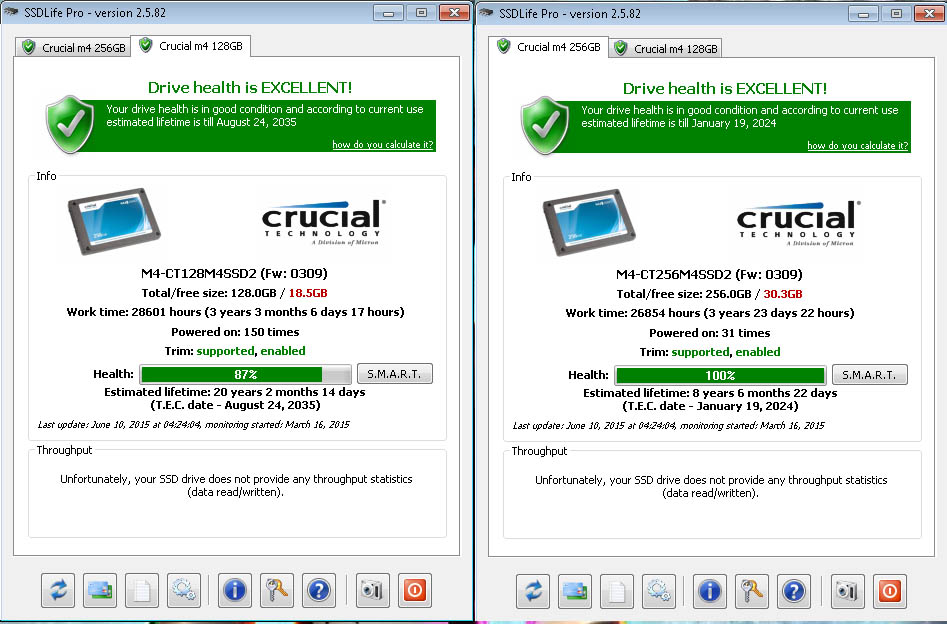oliveryuan
n00b
- Joined
- Feb 18, 2020
- Messages
- 26
Hi,
I have heard that SSDs fail suddenly and without any warning.
Its been some years I purchased my SSD.
Is it possible to predict when my SSD is going to fail ?
I have heard that SSDs fail suddenly and without any warning.
Its been some years I purchased my SSD.
Is it possible to predict when my SSD is going to fail ?
![[H]ard|Forum](/styles/hardforum/xenforo/logo_dark.png)
